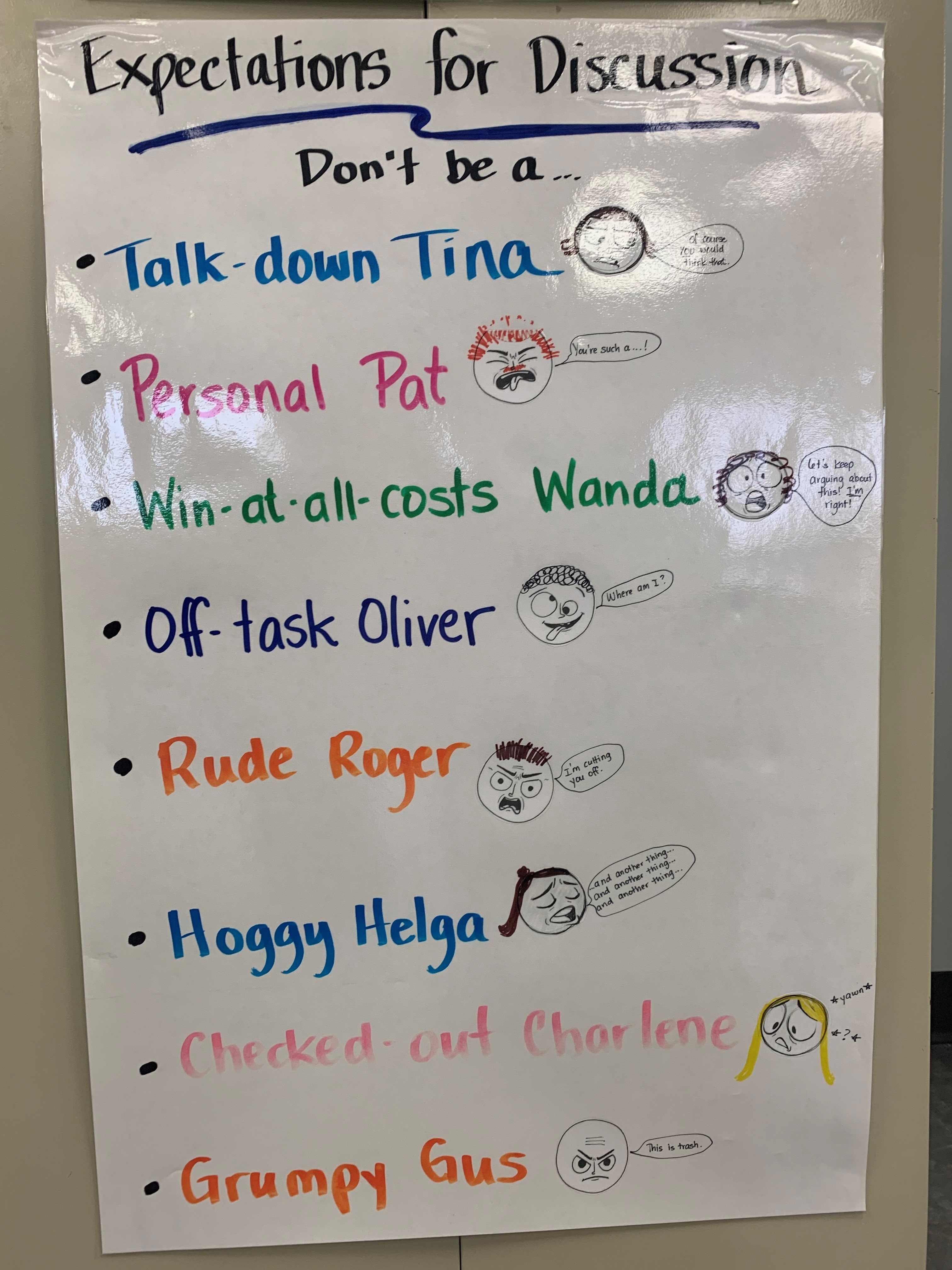You feel it, I feel it, we all feel it: group dynamics are different now. I started this article with a rather long lament about it. We don’t have as much time to teach content now that social-emotional needs prevail, the skill disparity is growing, parents aren’t as supportive, resilience has eroded…
It was a bummer. I didn’t even like reading it back. Delete.
We are where we are. We need to do what we need to do. I have no answers, but I’ll tell you about what’s going well—and what’s not—in Room 29.
Let’s start with how we’re coping with social immaturity.
- It’s become necessary to delineate expectations, down to the last detail, for things that used to be inherent before. Classroom soft skills—like not interrupting, entering a room unobtrusively, using manners—all have to be spelled out regularly, much more so than they have in the past.
- I used to feel like a failure for sounding like a broken record, but I’ve reframed that. I repeat stuff because it needs repeating. It needs repeating. It needs repeating. Now I just consider it part of my day.
- There are some habits to break that students formed in 2020. We have to name them in order to break them. We make weekly goals about how we’ll make our class a peaceful place and revisit them often.
- I remind myself that I can’t expect to kids behave, communicate, or respond like adults. I have notoriously high expectations in my classroom, but I have to remember that I am, after all, teaching kids. What should kind, diligent, inclusive sixth graders be acting like? That is a better question than “How can I shut down all of this tomfoolery?”
- We all need more brain breaks. So, we take them without guilt. A tight lesson plan with strong pacing is a beautiful thing, but so is getting your blood flowing.
- I narrate out loud, in real time, how I overcome frustration.
- I point out my mistakes and ask the students to point them out, too. Mistakes have become less scary in our classroom.
- I ask students to write me a Fri-yay letter each Friday in which they can tell me anything they want. I value these letters and they help me keep a finger on the pulse of the kids.
Let’s talk for a minute about academic immaturity. Here’s what we are doing in my little neck of the woods, where skill disparity is on full display.
- Background knowledge is essential for comprehension, and I see less of this all the time (for reasons we can all theorize). We take more time than before to ask essential questions, make personal connections, and set the stage. This can’t be rushed or skipped.
- It’s evident that vocabulary growth was halted for a while; the students may not have gained their 3000–4000 words in a year during interrupted instruction. Unfortunately, we are still bound by the number of minutes in a block (and the space-time continuum), so I can’t bump anything for more direct vocabulary instruction. Instead, we’re intentional about noticing and discussing interesting or well-chosen words as we close read or have read aloud time (which is never cut in Room 29).
- We acknowledge the level of difficulty for each task. Students get a “this will take grit!” warning before assignments and a reminder of what grit looks like as it pertains to that assignment.
- We acknowledge the boredom level of some tasks and don’t pretend it’s all wonderful stuff.
- We start slowly with group work. Two years after the pandemic started, I still have trainwreck lessons in the fall if there’s group work involved. I know we are supposed to hold up the ideals of what perfect collaboration looks like. I do, but I add something else. I name the behaviors that derail cooperation. We call it “Don’t Be That Person.” We go over this before every small group activity.
- I MUST affirm before I correct. In my opinion, students don’t accept feedback as readily or willingly as they once did.
- I refuse to just give students answers and I know it creates frustration at times. But we push through it in the name of developing grit.
- I don’t put grades on as many assignments. I have shifted to a formative emphasis and do far more check-ins than I once did. (I acknowledge there is a downside to this.)
- I offer re-tests and re-grades. I just want them to learn. I know this opens a can of worms, but in Room 29 these are the worms I’ve chosen.
If anything, the goings-on in Room 29 have shown me that growing up ain’t easy, that I need to help that process along the best I can, and that perfection isn’t attainable, but peace is. We’ll get there. We’ll get there.




